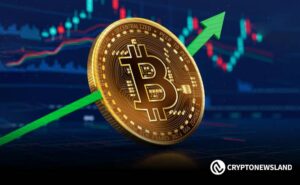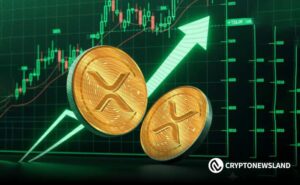The New York Times: Trump family’s crypto fundraising is even worse than Watergate
When presidents start issuing tokens, politics is no longer a means of governing the country but becomes a game to boost their own market value.
Original Title: Teapot Dome. Watergate. They’re Nothing Compared to This.
Original Author: Jacob Silverman (Author of “Gilded Rage: Elon Musk and the Radicalization of Silicon Valley”)
Translated by: Kaori, Peggy, BlockBeats
Editor's Note: In the history of American politics, no president has ever intertwined national power, personal branding, and financial speculation into a global-scale experiment quite like Trump.
The combination of money and power is nothing new, but when this combination appears in the form of “tokens,” when the image of a head of state is minted into a tradable asset, and when political influence can freely circulate on the blockchain, what we are facing is no longer corruption in the traditional sense, but a systemic reconstruction.
This article does not document a single scandal, but rather a paradigm shift: the president is no longer just a political figure, but the largest token holder in a decentralized economy; diplomatic relations are no longer forged through secret talks, but are instead connected by wallet addresses. Technology, once seen as a guarantee of transparency and fairness, may now become a new broker of power.
When cryptocurrency enters the White House, when the digital shadow of the dollar becomes entangled with national will, we must reconsider a question: in this era of “on-chain sovereignty,” do the boundaries of power still exist?
The following is the original content.
The New Wallet of Power: How Cryptocurrency Entered the White House
If you are an authoritarian leader trying to influence another head of state, you might give him a luxuriously equipped Boeing 747; you might spend lavishly at his hotels or invest in the many businesses owned by him and his children; you could even buy his sneakers, NFTs, and other branded merchandise.
But in the case of President Trump, potential “power brokers” have a much richer menu of options.
But now, all of these seem redundant.
During his campaign, Trump announced his own cryptocurrency plan—World Liberty Financial—and launched a meme coin named after himself just days before taking office. Anyone who buys World Liberty tokens can indirectly funnel funds into the Trump family business. Through crypto projects controlled by the president, his son, and family friends, the Trump family has accumulated billions of dollars in paper wealth.
World Liberty has become a powerful channel of influence: anyone—whether you, me, or a UAE prince—can simply buy tokens issued by the company and fatten Trump’s wallet.
The key is this “convenience.” For those seeking influence, suitcases full of cash and Swiss bank accounts have been replaced by crypto tokens that can be quickly transferred between wallets and exchanges. More sophisticated crypto users—state actors, hacker organizations, money laundering groups—can also use tools like “mixers” to obscure transaction traces.
It is precisely this convenience that has made cryptocurrency the tool of choice for criminal organizations and sanctions evaders.
The Illusion of Transparency: When Corruption Happens in the Name of “Decentralization”
This is unprecedented in American political history.
Looking back at scandals of previous administrations—the corrupt aides around President Grant, the oil lease bribes of the “Teapot Dome Scandal” during Harding’s era, and even Nixon’s “Watergate”—none have ever seen personal and government interests so massively conflated as with Trump, nor has anyone extracted such enormous personal profit from it.
There is nothing innovative here; the only truly “novel” aspect is that the sitting president openly uses his name, image, and social media influence to promote crypto tokens that are almost indistinguishable from thousands of other products on the market. In the eyes of MAGA supporters and ordinary speculators, buying these tokens may mean “losing everything”; and a president leading political supporters into such high-risk investments is, in itself, a condemnable act.
But the greater risk is that powerful foreign forces may use this to funnel huge sums to Trump.
For any head of state, buying Trump’s tokens or investing in his crypto projects has become a direct act of political speculation.
This is exactly the perverse incentive created by Trump’s “crypto donation box.”
Take, for example, two recent multi-billion dollar deals between one of the most influential figures in the UAE—Sheikh Tahnoon bin Zayed Al Nahyan—and Trump’s Middle East envoy Steve Witkoff:
In the first deal, a state-owned investment fund led by Tahnoon pledged to invest $2 billion worth of USD1 stablecoins (issued by World Liberty Financial) in Binance, the world’s largest crypto exchange. (Stablecoins are cryptocurrencies designed to maintain stable value and serve as “digital dollar” substitutes.)
It is worth noting that Binance founder Changpeng Zhao, after pleading guilty to money laundering, is now seeking a pardon from Trump.
In the second deal, Witkoff and Trump-appointed “AI and Crypto Chief”—venture capitalist David Sacks—brokered an agreement allowing the UAE to purchase hundreds of thousands of high-end AI chips for data center construction. These chips are extremely sought after in the global AI race and are subject to strict export controls. Experts worry that these chips may be resold or shared by the UAE with Chinese companies.
Although there is no conclusive evidence of explicit “quid pro quo” in these two deals, the participants and interest networks are highly overlapping, and the pattern of mixing public and private interests is becoming a hallmark of the Trump administration.
Tahnoon’s use of $2 billion worth of USD1 stablecoins is itself intriguing.
If his only goal was to invest in Binance, he could have simply wired the money directly.
Choosing to use World Liberty Financial’s USD1 stablecoin as an “intermediary” is essentially “blood transfusion” for a company that directly benefits Witkoff and Trump.
Despite the strong scent of scandal, most of Trump’s crypto activities take place in relatively public settings.
Some notorious crypto figures even flaunt on social media that they have bought tens of millions of dollars worth of WLFI tokens.
The most active among them is Chinese crypto entrepreneur Justin Sun—who frequently showcases his large holdings of World Liberty and Trump meme coins on social media, positioning himself as a key supporter of Trump’s crypto empire.
In February this year, the U.S. Securities and Exchange Commission (SEC) asked a federal judge to pause the civil fraud lawsuit against Justin Sun, and the court granted the request. In May, as one of the top holders of Trump meme coins, Justin Sun was invited to a dinner at Trump National Golf Club in Virginia—where he received a gold watch from the president.
In the past (just a few years ago), if a president were involved in such obvious conflicts of interest, Congress would have already held hearings and law enforcement agencies would have launched investigations.
But the Supreme Court’s recent ruling on “presidential immunity” has rendered these oversight mechanisms almost useless.
The Department of Justice will not prosecute a sitting president.
And at the start of his new term, Trump fired 18 inspectors general—key figures who could have exposed and investigated government crypto activities. In February this year, he also ordered the Department of Justice to suspend enforcement of the Foreign Corrupt Practices Act (which prohibits bribing foreign officials), only resuming enforcement four months later.
Meanwhile, regulators have shifted their focus away from the crypto sector, and the Trump administration has helped advance legislative agendas favored by the crypto industry.
The accumulation of crypto wealth by Trump and his offspring seems set to continue expanding during his term.
So far, there is no sign of any “ceiling” to stop foreign capital from flowing in. This door has opened a pathway to a level of top-tier corruption never before seen in America. And we must confront the dark possibilities it brings.
Disclaimer: The content of this article solely reflects the author's opinion and does not represent the platform in any capacity. This article is not intended to serve as a reference for making investment decisions.
You may also like
Shiba Inu Eyes a Massive Rebound as Bulls Eye a 3X Rally

Bitcoin Plummets Again, But Here’s Why It Might Be a Bullish Signal

HYPE Struggles at $43 — Is a Breakout or Breakdown Coming Next?

Bullish XRP Trader Shares Deep Insights Explaining How $8, $20, and $27 Bull Targets Can Be Hit

